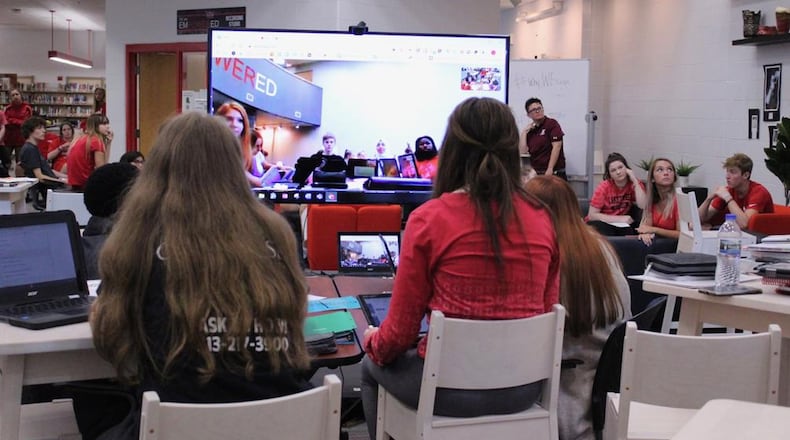It was a compromise move by Ohio legislators unable to agree on how to react to an extraordinarily public and stinging criticisms from public school leaders who contend the voucher program now is unfairly too broad and financially devastating to public school finances.
Many area superintendents have said the program could be devastating for public district finances, while supporters and some private school officials said they prefer programs that give parents a greater choice in where their children attend school.
“I’m glad that our state legislators have pushed pause on the start of enrollment for EdChoice,” said Matt Miller, superintendent of Lakota Schools, which is the largest district in Butler County.
“I hope that our legislators take the time to do the work required to get this right.
“… I absolutely believe that parents should be able to choose where their child goes to school, but public tax dollars should not be used to pay for private education,” he said.
Fairfield Schools Superintendent Billy Smith, one of the more vocal leaders among area superintendents lobbying aggressively to reduce the scope of EdChoice, said, “I appreciate the fact that the legislators delayed the application window for the EdChoice voucher program. My hope is that they will use this extra time to make the changes that need to be made to the voucher laws.”
Smith - and other local school officials - have also blasted Ohio’s often-changed, annual report cards as inaccurate measurements of school district quality and further using the reports as a basis for EdChoice eligibility for students is compounding the voucher system’s shortcomings.
“The goal in the short term is to address the issues with the voucher program. For the long term, I am hopeful the legislators will address the issues with the state report card.”
A variety of changes tied to the voucher system – school report card metrics, legal tweaks and the end of a “safe harbor” period – would have meant tens of thousands more public school students would have been eligible for vouchers this fall. Many of those newly affected public schools received overall Bs or Cs on the state report card.
For years, Ohio students have been able to qualify for taxpayer-funded, private-school vouchers in two ways: If their home public school is designated as under-performing on the state report card or they qualify if their family income is less than 200% of the federal poverty level ($51,500 for a family of four).
The voucher is worth up to $4,650 towards private-school tuition in grades K-8, and $6,000 in grades 9-12.
Private schools have supported the EdChoice system, saying vouchers give more families a chance at faith-based schooling that includes moral education, and arguing that parents should be able to choose education “that matches their value system.”
Brian Doyle, whose children attend the private Badin High School in Hamilton, welcomes the new expansions of the EdChoice voucher program, saying for too long public schools have had a “monopoly” on local education choices even if they are chronically underperforming.
“My complaint is simple, you should not reward or encourage failing educational providers with taxpayer funds,” said Doyle. “Community tax dollars should be spent on the best educational providers in the community, be they public or private.”
But Hamilton Schools Superintendent Mike Holbrook said the delay of EdChoice won’t lessen his district’s opposition.
“Hamilton City Schools appreciates the delay regarding the consideration of school vouchers but has not amended its stance,” said Holbrook. “The district opposes any legislation that takes dollars away from public schools, and this includes any expansion of private school vouchers.”

